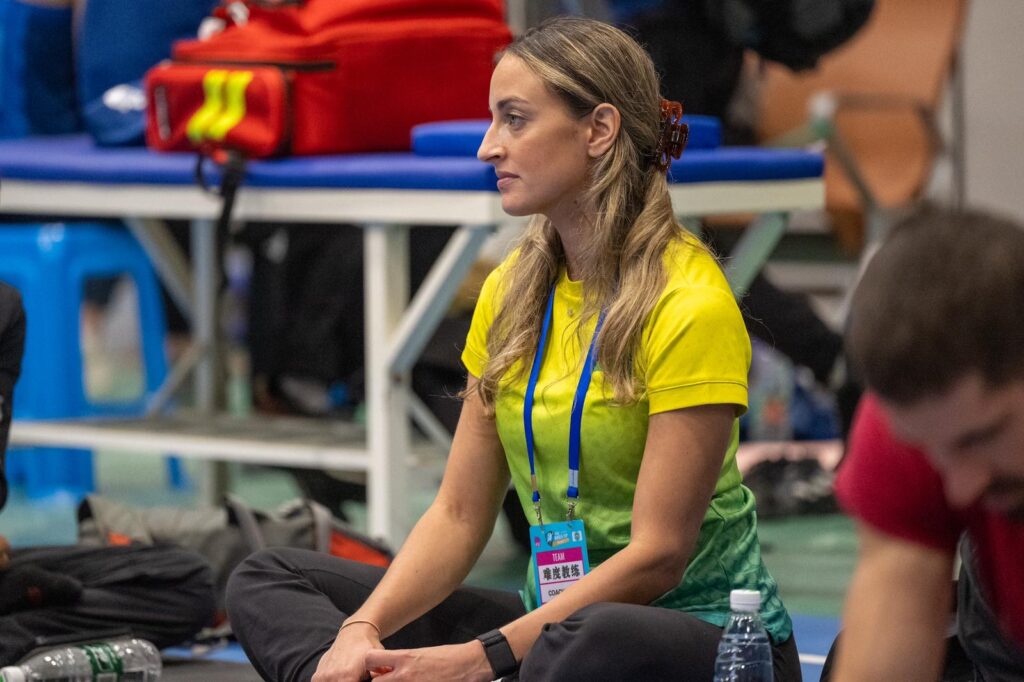
The Female Coaching Network (FCN) Well-Being Research Report, conducted by Dr. Leanne Norman and Richard Simpson at Leeds Beckett University, provides a valuable analysis of the experiences of nine international female head coaches across various sports. The report focuses on their occupational well-being, career transitions, and the unique skills they bring to coaching. These women, with experience spanning between 12 to 40 years in sports like tennis, netball, football, volleyball, rowing, swimming, and hockey, shared their insights through in-depth interviews. The study highlights the barriers they face and the contributions they make, while emphasizing the need for more recognition and support for female coaches.
Key Themes from the Research
- Connecting, Mentoring, and DevelopingFemale coaches possess unique skills in fostering connections and mentoring, which are essential to their success. The research identified that women in coaching actively seize opportunities for growth, develop new skills, and engage in meaningful networking. Many participants shared stories of how they seized opportunities that led to their coaching careers. For example, one coach described how a simple task at a club’s desk led to an unexpected coaching opportunity when a pro failed to show up. This adaptability and openness to new experiences exemplify the proactive approach many female coaches take in their careers.Additionally, female coaches play an important role in mentoring younger coaches, especially in male-dominated environments where female role models are scarce. The ability to build strong networks and support systems allows women to thrive in a profession where opportunities for advancement are often limited.
- Balancing Work-Life CommitmentsOne of the major challenges highlighted by the participants is the need to balance professional responsibilities with personal life, a theme often emphasized in the literature on female leadership in sports. Female coaches are not only expected to manage their coaching roles but also juggle family obligations and personal well-being. This balancing act is especially difficult as many of these coaches are mothers or have other family responsibilities that complicate their schedules.The report reveals that family support and understanding play a crucial role in helping female coaches succeed. For example, one coach shared how her family supported her during important symposiums, demonstrating the integration of personal and professional lives. Others reflected on how coaching had inadvertently taught their children valuable life skills, such as discipline and time management.
- Managing Conflict and ExpectationsFemale coaches often face significant organizational barriers, such as gender stereotypes, unequal pay, and resistance to women coaching men. Despite these challenges, they exhibit remarkable professionalism in handling conflicts. One participant recounted an experience where a male colleague attempted to alter their agreed-upon contract, demanding a higher share of the compensation. Her decision to walk away from the negotiation table until the terms were fair illustrates the resilience and strategic thinking required to navigate such unjust scenarios.Female coaches also address the need for better communication skills and emotional intelligence when working with both male and female athletes. They understand that coaching requires more than just tactical expertise—it involves managing personalities and emotions effectively, an area where many women excel. One participant emphasized the importance of listening to athletes’ emotional needs, advocating for a more empathetic approach to coaching, particularly when working with female athletes.
- Influencing and Creating Positive CulturesA significant contribution of female coaches lies in their ability to create inclusive, positive coaching environments. They are often tasked with challenging stereotypes and creating spaces where athletes feel supported and valued. Many participants discussed how they strive to instill values like discipline, perseverance, and respect in their athletes. This holistic approach to coaching goes beyond just improving sports performance—it aims to shape better human beings.Furthermore, female coaches are influential in driving change within their sports by promoting diversity and inclusivity. One coach noted how societal expectations often undermine female athletes, leading to lower expectations of their capabilities. Through their work, these coaches are shifting perceptions and proving that women are just as capable as their male counterparts in achieving high-performance outcomes in sports.
Conclusion
The FCN Well-Being Research Report sheds light on the significant, yet often overlooked, contributions of female coaches in sports. Despite facing gendered barriers such as stereotypes, unequal pay, and limited opportunities for advancement, female coaches demonstrate resilience, adaptability, and leadership. They excel in connecting with their athletes, mentoring younger coaches, balancing professional and personal commitments, and fostering positive, inclusive environments. The report concludes that recognizing and supporting female coaches is essential for promoting gender equality in sports and ensuring that the valuable skills they bring to the profession are fully acknowledged.
In a male-dominated field, female coaches are not just leading teams; they are paving the way for future generations, instilling values that go beyond sports, and fostering environments where both men and women can thrive.
Download a copy of the full paper HERE